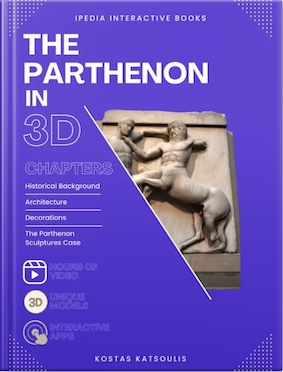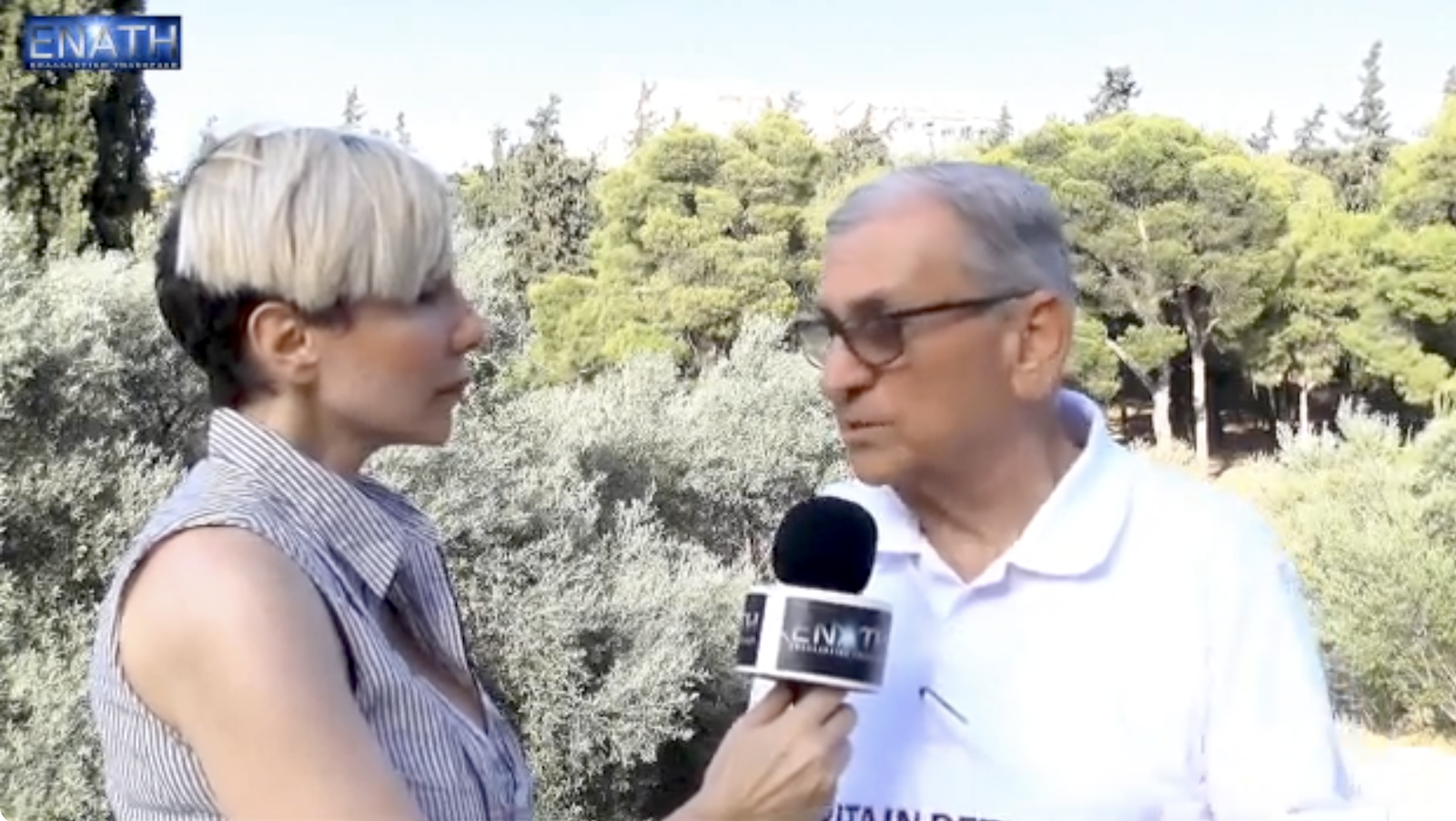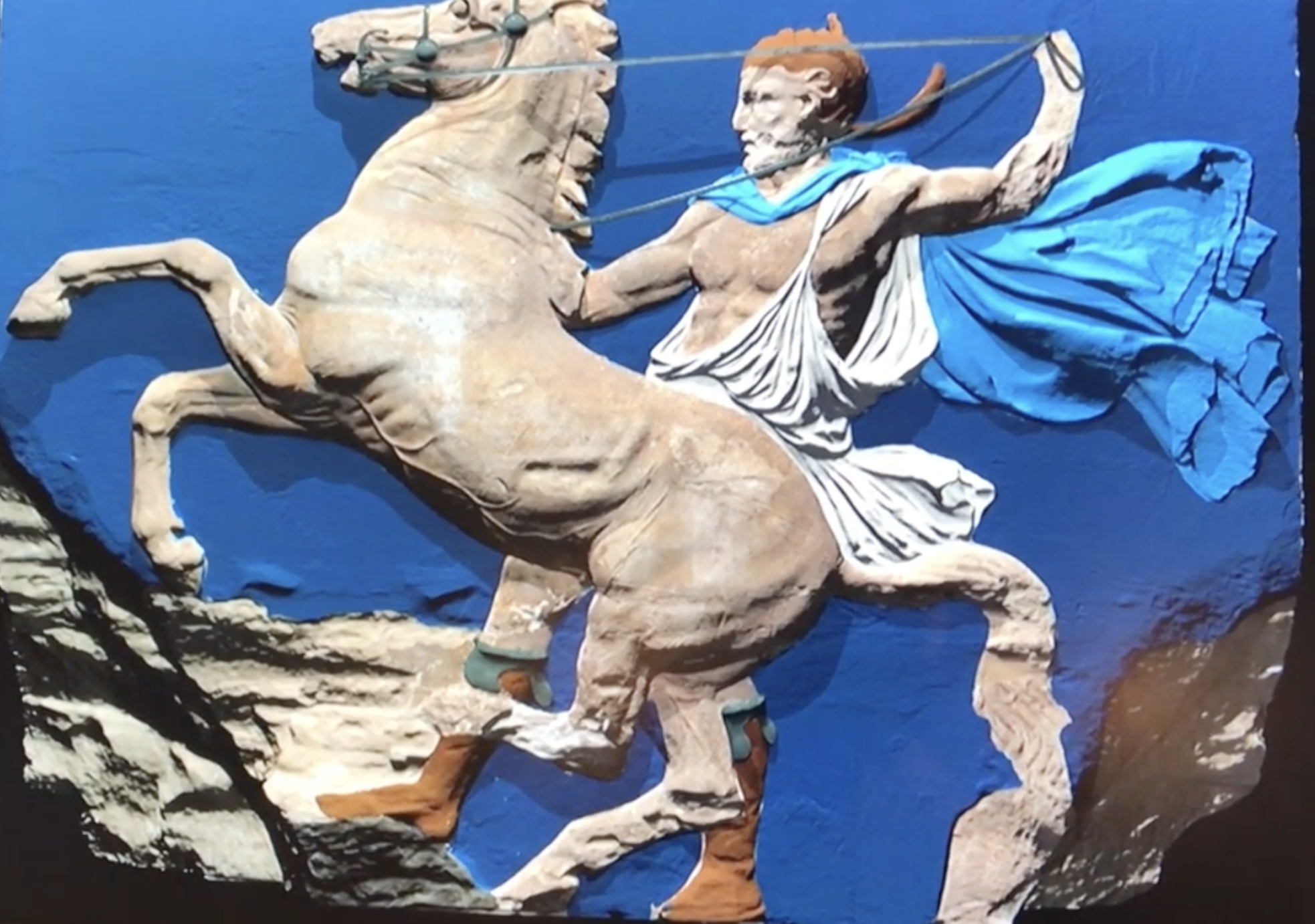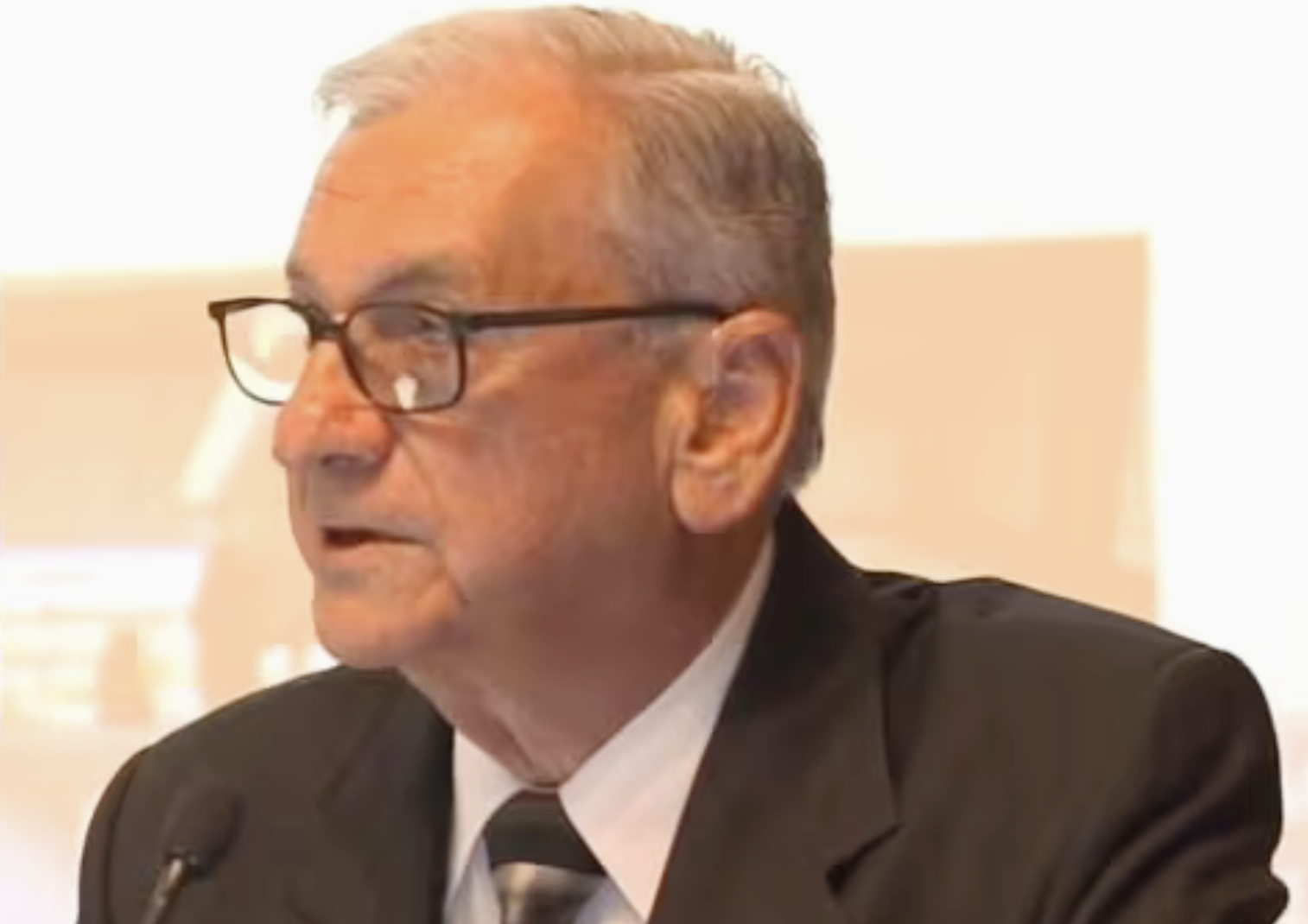
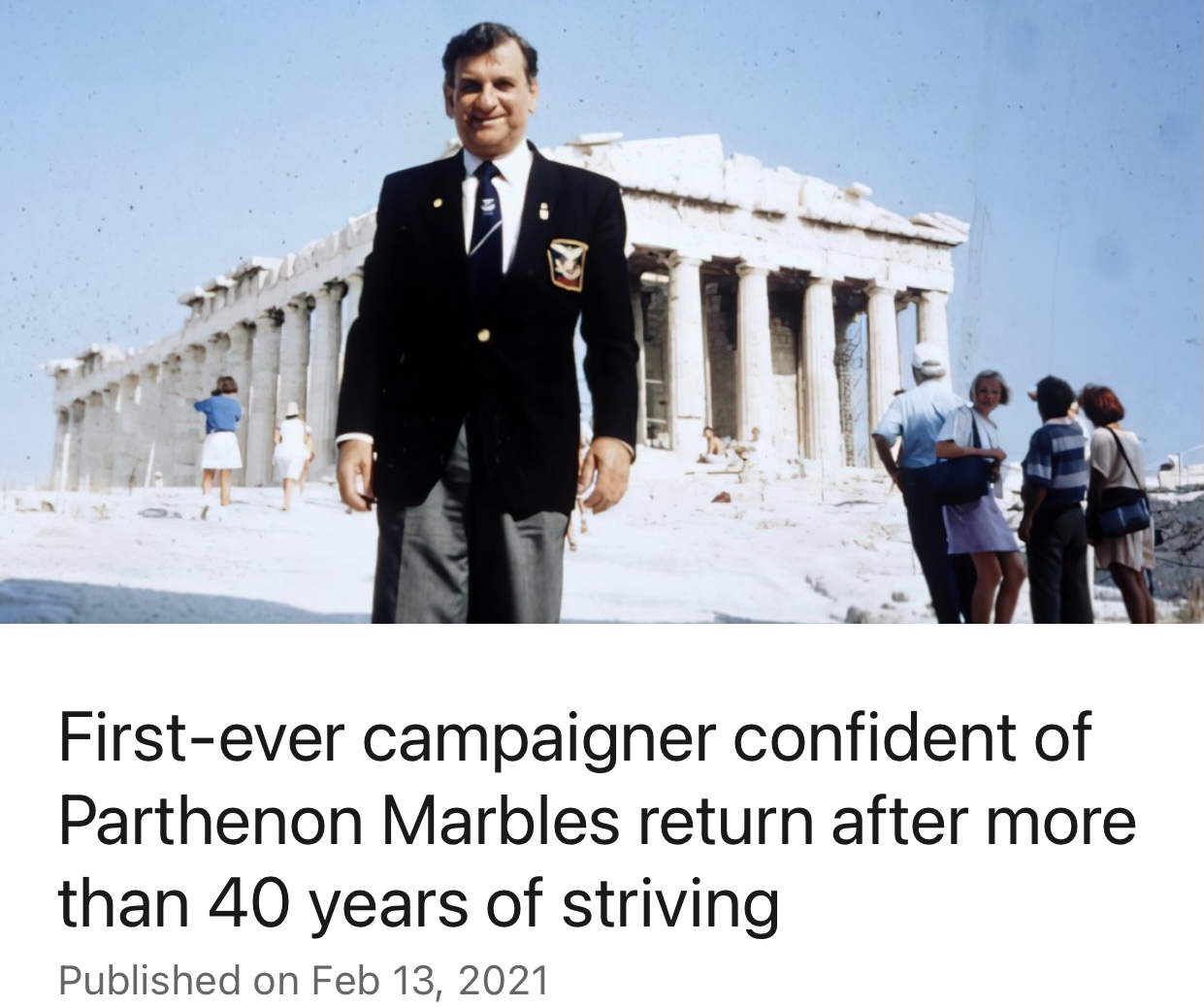
We reproduce this comprehensive article about our founder and the chair of our committee Emanuel J Comino.
This is also a story about the movement he has inspired.
Βy Yannis Andritsopoulos, London Correspondent for the Greek daily newspaper Ta Nea (iandritsopoulos@gmail.com)
“My boy, do not ever stop the campaign for the return of the Parthenon Marbles to our country.”
This affectionate exhortation came from the mouth of a tearful – but always dazzling – Melina Mercouri. She was one of the most emblematic figures of contemporary Greece and her words are unforgettable despite being made nearly 40 years ago.
“I made a promise. I looked at her and replied: ‘I will continue to fight for the return of the Parthenon Marbles until the UK promises to send them back or until the day I die’,” says Emanuel Comino.
Comino is the man who first started the international campaign for the reunification of the Parthenon Sculptures. They have been on display in the British Museum since 1817, a year after they were sold to the British government by Lord Elgin who had controversially removed them from the Parthenon.
Comino founded the first committee in the world advocating their return to Greece. His campaign commenced long before Mercouri began her world crusade for the Marbles’ return.
He set up his committee in Australia ten days before the award-winning actress was put in charge of the Greek Ministry of Culture after Pasok won the 1981 election.
His campaign, though, started five years earlier, in 1976, when the then 43-year-old Greek-Australian began traveling the world in a bid to raise awareness for the plight of the Parthenon Marbles.
In the years that followed, he gave more than 300 lectures, sent letters to all the British prime ministers, and persuaded Australia’s most powerful politicians to support his cause.
Comino will turn 88 in May and is known among fellow campaigners and Greek government officials as the “father” of the Parthenon Marbles’ campaign.
Today, he says, his motivation and determination are stronger than ever. “I will not stop campaigning until Britain sends the Marbles back to Greece,” Comino, founder and chairman of the historic International Organising Committee – Australia – for the Restitution of the Parthenon Marbles (IOCARPM), and vice-chair of the International Association for the Reunification of the Parthenon Sculptures (IARPS), told Greek daily newspaper Ta Nea.
Emanuel John Comino AM (Greek Εμμανουήλ Κομηνός) was born in Rockhampton on May 13, 1933. His Greek parents emigrated from the island of Kythera to Australia at the dawn of the last century.
In 1937, at the age of four, he lost his mother. The following year, Emanuel, his brother and their father travelled to Greece for a short holiday. While they were there, Greece was drawn into World War II and the family had no option but to stay in Kythera. Nine years later, they returned to Australia.
After serving brief stints in milk bars, cafes and a fruit shop, Emanuel entered the insurance industry in 1965, becoming an insurance broker and investor.
‘A magical moment’
Comino’s interest in the Parthenon Marbles began in 1976, during his second visit to Greece. “I vividly remember the moment I first saw the Parthenon. I was dazzled by its grandeur. It was a magical moment,” he says.

“I immediately realised the extent of damage caused by Lord Elgin. I had previously visited all the great museums of Europe and I felt a mounting anger as I saw, in each of these establishments, the exquisite treasures of ancient Greece. So, I decided to start a movement for the reunification of the Parthenon Marbles.”
He began reading everything that was written on the subject and soon started giving speeches in several countries.
On October 8, 1981 he founded the first committee in the world to campaign for the return of the Parthenon Sculptures, which was originally under the auspices of the Australasian Hellenic Educational and Progressive Association (AHEPA). Ten days later, Melina Mercouri became Minister for Culture.
‘A tear in her eye’
“In early 1982, I read in a newspaper Melina Mercouri’s comments about the Parthenon Marbles. She condemned the British government’s provocative refusal to return them to Greece, adding that she would support strongly an international campaign to reunite them,” Comino says.

“I sent her the original motion of support for the founding of our committee and wrote to her that we wanted to be part of a coordinated world-wide effort. She replied that she enthusiastically supported my initiative”.
The following year, Mercouri travelled to Sydney; the Premier of New South Wales invited Comino to meet her.
“I approached the official who accompanied her and gave him a copy of the letter she had sent me. He walked to the other side of the room and handed it to her. She glanced at the letter, her face lit up, she threw up her hands, and turned towards me. She came straight across the room to me and greeted me very warmly, her hands on either shoulder,” Comino says.
As she was leaving, she came over to him and said in Greek: “My boy, do not ever stop the campaign for the return of the Parthenon Marbles to our country.”
“I looked at her and replied, in English: ‘I will fight on for the return of the Parthenon Marbles until England promises to send them back or until the day I die’.”
“She embraced me and held my hand. There was a tear in her eye as she kissed me on the cheek and left.”
He remained in regular contact with Mercouri until she passed away on March 6, 1994. As she requested, Comino’s committee remains in very close contact with the British Committee for the Reunification of the Parthenon Marbles (BCRPM).
For 44 years, Comino travelled the world giving speeches and lobbying politicians on the Parthenon Sculptures.
Australian Prime Minister John Howard wrote to him in March 2002 that “the Parthenon Marbles are an irreplaceable part of Greek heritage and national identity”; later that year he raised the issue with his British counterpart Tony Blair.
Several prominent Australian politicians have made similar statements of support thanks to his lobbying.
In March 2000 he established the New Zealand Committee and appointed Gerald O’Brien, former minister of the New Zealand government, as president.
His only grievance, he notes, is that “I was not invited to the opening of the Acropolis Museum, although I financially supported its construction.”
In 2016 Emanuel travelled to London. “My wife and I went on a sightseeing tour. As we passed the British Museum, the tour guide told our group: ‘I do not know why they call it British. There is nothing British in it! Everything in there is stolen’.”
Comino is confident that he will win the fight he started more than 44 years ago. “Only when the Parthenon Marbles will be reunited at the Acropolis Museum will they be able to tell their glorious story. There are no excuses. All together we will make the dream of many generations come true.”
This news report was published in the Greek daily newspaper Ta Nea (www.tanea.gr) on 13 February 2021.
© 2021 Yannis Andritsopoulos and Ta Nea All Rights Reserved
Click here for the Greek version Written by

